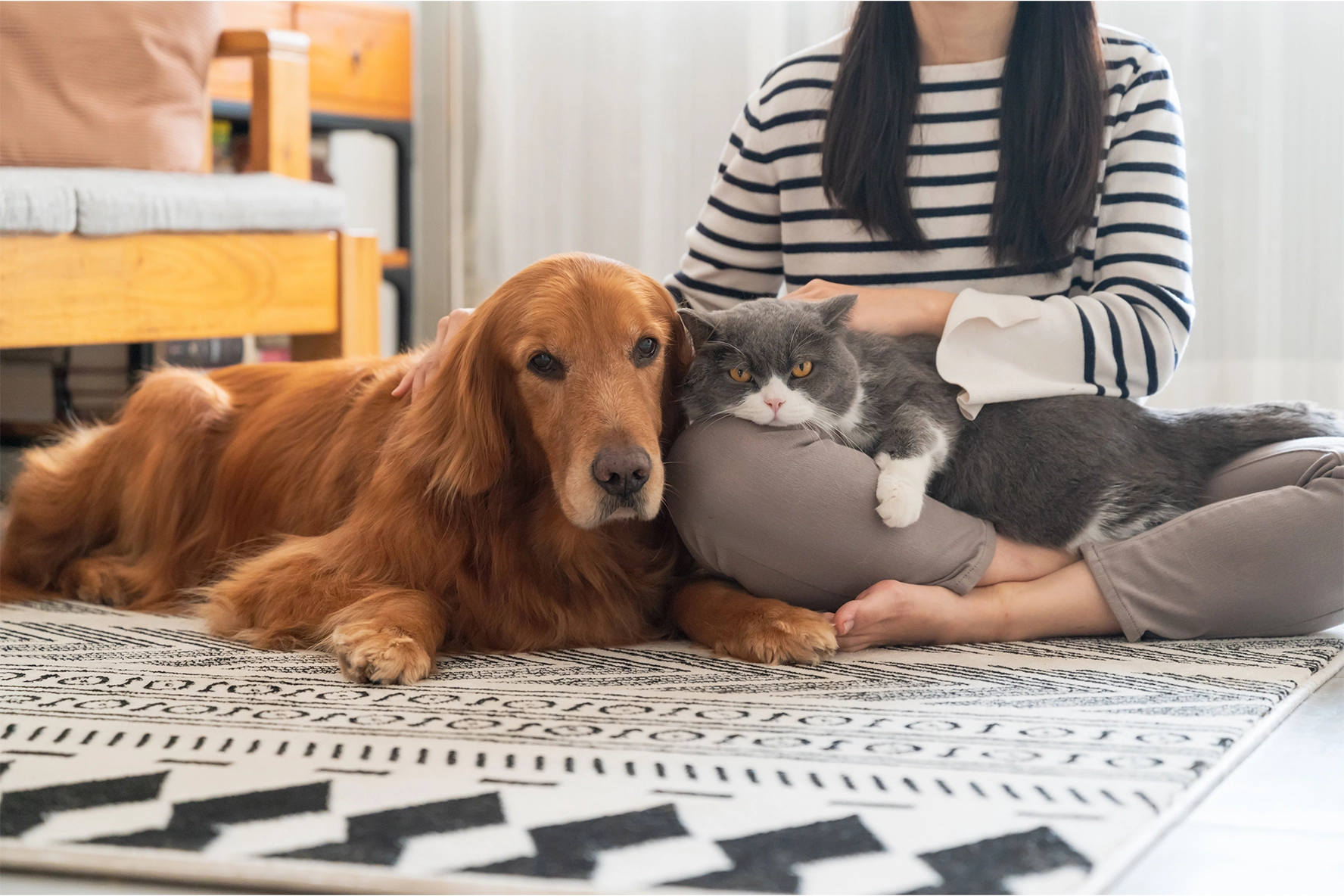
Chemotherapy isn't just for people; it can help our pets too, including cats. However, it's important to know that chemotherapy can have side effects. Cats don't get as many side effects as humans, and notably take better to the drugs than people do, but they can still feel unwell sometimes. Understanding these side effects helps us take better care of our furry friends.
By learning what to expect and how to help, we can make sure our cats stay as comfortable and happy as possible during their treatment.
Why Use Chemotherapy in Cats
Chemotherapy is a treatment that uses strong medicines to fight cancer cells. Just like in humans, these medicines are designed to target and destroy the cancer, but they can also affect healthy cells. This is why sometimes there are side effects.
In cats, chemotherapy is administered to shrink tumors, slow down the spread of cancer, and even eliminate it in some cases. The goal is to give our pets a better quality of life and a longer time with us, despite their diagnosis. Veterinarians use different types of chemotherapy drugs depending on the type of cancer and the cat’s overall health. These medicines can be given in various ways, such as pills, injections, or through an IV.1
The benefits of chemotherapy in pets are significant. It can help reduce pain and discomfort by shrinking tumors that might be causing issues. It can also slow the spread of cancer, giving our pets more time to enjoy life. Importantly, veterinarians carefully plan treatments to minimize side effects and ensure that pets remain as comfortable as possible.
Chemotherapy for cats is all about balance. The aim is to fight cancer while keeping our furry friends happy and comfortable. With the right treatment plan, many cats can continue to live joyful, active lives even while undergoing chemotherapy.
Chemotherapy is the best choice for treating lymphoma in cats because it effectively targets and reduces cancerous cells, helping to extend and improve the cat’s quality of life. You can learn more about chemotherapy treatments for cats with lymphoma here.
The difference between cats and humans with chemotherapy treatment
One big difference between chemotherapy in cats and humans is the intensity. For humans, chemotherapy can be very strong and often has severe side effects because the goal is usually to cure the cancer completely. In cats, the approach is a bit gentler. The focus is on comfort and quality of life rather than a complete cure. This means the doses are usually lower, and the side effects are much milder. Studies have not found that higher chemotherapy doses lead to longer lives in cats.3
Common Side Effects of Chemotherapy in Cats
Cats undergoing chemotherapy may experience some side effects, though they are generally mild and easy to manage. Understanding these side effects can help pet owners provide better care and comfort to their furry friends.2,4,,5
Nausea, Vomiting, and Diarrhea
Nausea and vomiting are common side effects of chemotherapy in cats. These symptoms can usually be managed with anti-nausea medications prescribed by the veterinarian. Diarrhea can also occur in cats receiving chemotherapy. It’s important to ensure the cat stays hydrated and to consult the vet if the diarrhea persists or becomes severe. Often stools can become softer but diarrhea with liquid stool and increased frequency is less common.
Appetite Loss
Chemotherapy may cause a loss of appetite in cats. Offering small, frequent meals and ensuring the food is appealing can help maintain their nutrition. Appetite stimulants can help some cats and can be prescribed by your veterinarian.
Fatigue and Lethargy
Cats may feel more tired and lethargic during chemotherapy treatments, but this should not last more than a few days after treatment. Providing a comfortable and quiet resting place can help them conserve energy and feel better. Contact your veterinarian if you cat is very lethargic over multiple days and/or if they are hiding.
Lowered White Blood Cell Count (Risk of Infections)
Chemotherapy can lower a cat’s white blood cell count, making them more susceptible to infections. Regular veterinary check-ups and monitoring blood work are crucial to catch and treat any infections early.
Hair Loss (Rare in Cats)
Unlike humans, hair loss is rare in cats undergoing chemotherapy. If it does occur, it’s usually minimal and not as noticeable. Cats have a different shed cycle than people do so their fur is not usually effected by chemotherapy. Many cats can lose their whiskers while on chemotherapy. While this does change their appearance some, cats are not reported to have any clinical signs from loss of their whiskers.
How to Manage and Mitigate Cat Chemotherapy Side Effects
Being an informed pet parent is going to be a big step towards helping your cat navigate any potential side effects. Knowing what to keep an eye out for will help you address any concerns with your veterinarian as they appear.
You and your vet will be playing different roles on the same team in managing your cat’s side effects from their chemotherapy treatment. You’ll be keeping an eye on their behavioral or habit changes while at home during the process, and your veterinarian will keep a close eye on your cat’s health through check-ins where they will take a look at blood tests and physical exams. Both of you will be crucial in catching any potential side effects and communicating when changes to your cat’s treatment plan are needed so you can ensure your cat stays as comfortable as possible.
Side effect management options
To ease nausea, veterinarians can prescribe anti-nausea medications. These medicines help reduce vomiting and make your cat feel better, encouraging them to eat and drink normally. Appetite stimulants may also be given to help cats who lose interest in food during their treatment. These stimulants can make food more appealing and help maintain proper nutrition.
If there’s a risk of infection due to a lowered white blood cell count, antibiotics might be prescribed. These medications help prevent or treat infections, keeping your cat healthier and reducing complications.
Pain relief medications can also be an important part of managing side effects. If the cancer or the chemotherapy causes pain, these medicines can help your cat stay comfortable and improve their quality of life.
Being a Supportive Pet Parent for Your Cat During Chemotherapy
Supporting your cat during chemotherapy involves creating a comfortable and stress-free environment. Make sure they have a cozy, quiet space to rest, away from loud noises and other stressors. Gentle interactions and plenty of affection can help them feel safe and loved.
Proper nutrition and hydration are crucial during chemotherapy. Offer small, frequent meals of their favorite foods to encourage eating. Sometimes, warming the food slightly or adding a bit of broth can make it more appetizing. Always provide fresh water and consider using a pet fountain if your cat prefers running water. If your cat continues to avoid food or water, consult your vet for advice and discuss possible appetite stimulants or hydration support.
Monitoring your cat for any changes in behavior or health is important. Watch for signs of nausea, vomiting, diarrhea, or loss of appetite. Note any changes in their energy levels or mood. If your cat seems unusually tired, weak, or in pain, contact your vet immediately. Regularly check their weight and body condition to ensure they are maintaining a healthy weight.
Keeping a daily log of your cat’s behavior, eating habits, and any side effects can be helpful. Share this information with your vet during check-ups to help them adjust the treatment plan as needed.
By maintaining a supportive environment, ensuring proper nutrition and hydration, and monitoring your cat’s health, you can help them cope better with the side effects of chemotherapy. Your love and care play a vital role in their comfort and recovery.
High-Quality Care
Chemotherapy can significantly improve the well-being of cats with cancer, allowing them to enjoy a better quality of life. Staying informed and maintaining open communication with your veterinarian ensures your cat receives the best possible care. Trust in the treatment plan and your vet's guidance to help your cat through this journey.
ImpriMed helps pet parents of cats with lymphoma make the best decisions for their treatment. Find out more about what we do here.
References:
- https://www.vetspecialty.com/specialties/medical-and-radiation-oncology/chemotherapy-for-dogs-and-cats-frequently-asked-questions/
- https://www.vet.cornell.edu/departments-centers-and-institutes/sprecher-institute-comparative-cancer-research/treatment-strategies/managing-common-side-effects-chemotherapy-companion-animals
- https://www.medvet.com/faq-chemotherapy-in-cats-dogs/
- https://todaysveterinarynurse.com/oncology/chemotherapy-induced-side-effects-prevention-and-treatment/
- https://www.ovchsc.ca/animal-cancer-care-services/side-effects/


